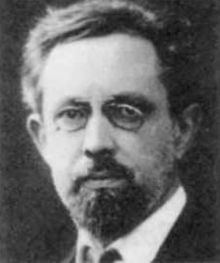Werner Sombart | |
|---|---|
 Sombart | |
| Born | 19 January 1863 |
| Died | 18 May 1941 (aged 78) |
| Nationality | German |
| Known for | Coining the term "late capitalism" |
| Scientific career | |
| Fields | Economics, sociology, history |
| Institutions | University of Breslau, Handelshochschule Berlin, Friedrich Wilhelm University |
| Doctoral advisor | Gustav von Schmoller Adolph Wagner |
| Doctoral students | Wassily Leontief Richard Löwenthal |
Werner Sombart (/ˈvɜːrnər ˈzɒmbɑːrt/; German: [ˈzɔmbaʁt]; 19 January 1863 – 18 May 1941) was a German economist, historian and sociologist. Head of the "Youngest Historical School," he was one of the leading Continental European social scientists during the first quarter of the 20th century. The term late capitalism is accredited to him. The concept of creative destruction associated with capitalism is also of his coinage. His magnum opus was Der moderne Kapitalismus. It was published in three volumes from 1902 through 1927. In Kapitalismus he described four stages in the development of capitalism from its earliest iteration as it evolved out of feudalism, which he called proto-capitalism to early, high and, finally, late capitalism —Spätkapitalismus— in the post World War I period.[1]